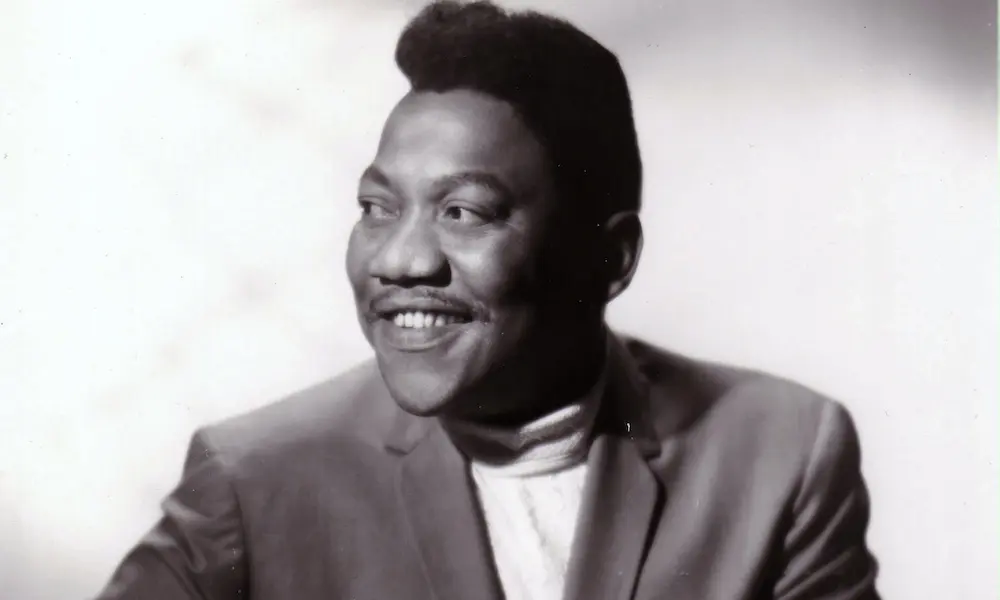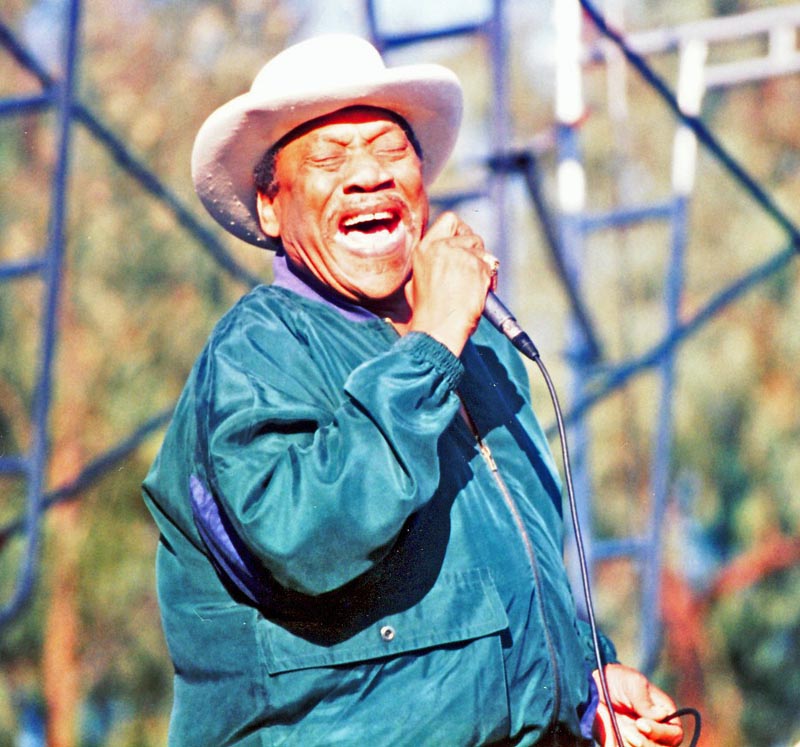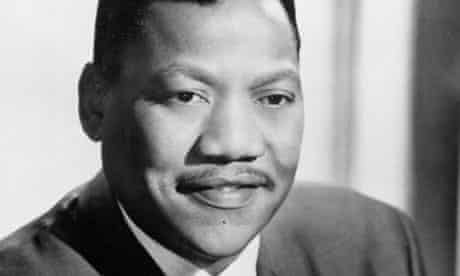Bobby “Blue” Bland
Bobby “Blue” Bland

Robert Calvin Bland, known professionally as Bobby "Blue" Bland, was an iconic American blues singer whose influence and storytelling prowess left an indelible mark on the genres of blues and soul music. Born on January 27, 1930, as Robert Calvin Brooks, Bland honed a distinctive sound that blended elements of gospel, blues, and R&B, creating tempestuous narratives of love, betrayal, and resignation.
Inspired by the sermons of Detroit preacher CL Franklin, Bland crafted his unique style by studying the dramatic and emotive delivery of Franklin's messages. His music was characterized by roiling orchestrations and intense vocal performances that captivated audiences and left them both drained and awed.
Bland earned several nicknames throughout his career, including the "Lion of the Blues" and the "Sinatra of the Blues," attesting to his stature as one of the genre's most formidable figures. His musical influences included Nat King Cole, whose smooth and melodic style resonated deeply with Bland.
Throughout his career, Bland received numerous accolades and honors, including induction into the Blues Hall of Fame in 1981, the Rock and Roll Hall of Fame in 1992, and the Memphis Music Hall of Fame in 2012. In 1997, he was awarded the prestigious Grammy Lifetime Achievement Award in recognition of his contributions to music.
The Rock and Roll Hall of Fame hailed Bland as second in stature only to B.B. King in terms of his impact on Memphis's vibrant Beale Street blues scene. Rolling Stone magazine further honored him by ranking him at number 163 on its list of the 200 Greatest Singers of All Time in 2023.
Bobby "Blue" Bland's legacy endures as a testament to his unparalleled storytelling ability, emotive performances, and profound influence on the landscape of blues and soul music.
Robert Calvin Bland, later known as Bobby "Blue" Bland, was born in Barretville, Tennessee, to his father I. J. Brooks and his mother. Unfortunately, his father left the family shortly after Robert's birth. Later, Robert adopted the surname "Bland" from his stepfather, Leroy Bridgeforth, also known as Leroy Bland. Robert's formal education was limited, as he dropped out of school in the third grade to work in the cotton fields.
In 1947, Robert and his mother relocated to Memphis, Tennessee, where he began immersing himself in music. He started singing with local gospel groups, such as the Miniatures, which allowed him to hone his vocal skills and develop his passion for music. Seeking new opportunities and connections, Robert frequented Beale Street, a renowned hub of musical talent in Memphis. There, he formed associations with emerging musicians like B.B. King, Rosco Gordon, Junior Parker, and Johnny Ace, collectively known as the Beale Streeters. These interactions and collaborations on Beale Street laid the groundwork for Bland's future in the music industry.

In 1951, Bobby "Blue" Bland's musical journey took a significant turn when talent scout Ike Turner recorded him for Modern Records at Tuff Green's house in Memphis. Despite Bland's illiteracy, they managed to record "They Call It Stormy Monday," the one song he knew at the time. Although this initial recording was never released, Bland revisited the song in 1961, turning it into one of his hit singles. Ike Turner backed Bland on piano for his first two records, which were released under the name Robert Bland.
Between 1951 and 1952, Bland recorded a series of commercially unsuccessful singles for Modern and Sun Records, which licensed its recordings to Chess Records. However, these recordings caught the attention of Duke Records, marking a significant turning point in Bland's career. Despite his growing potential, Bland's progress was interrupted when he served in the U.S. Army for two years, during which he performed in a band with singer Eddie Fisher.
Upon returning to Memphis in 1954, Bland found several of his former associates, including Johnny Ace, achieving success. He joined Ace's revue and returned to Duke Records, then under the management of Don Robey. Robey facilitated a new contract for Bland, who, unable to read, relied on Robey's assistance to sign it. Unfortunately, the contract granted Bland only half a cent per record sold, significantly less than the industry standard.
Bland released his first single for Duke in 1955 and began touring on the Chitlin' Circuit with Junior Parker in a revue called Blues Consolidated, initially serving as Parker's valet and driver. Collaborating with bandleader Bill Harvey and arranger Joe Scott, Bland started crafting the melodic big-band blues singles that would become his signature style. Accompanied by guitarist Wayne Bennett, Bland asserted his characteristic vocal style, despite not playing any instrument himself.
Bobby "Blue" Bland experienced his first chart success in 1957 with "Farther Up the Road," which reached number 1 on the R&B chart and number 43 on the Billboard Hot 100. This achievement was followed by a string of hits on the R&B chart, including "Little Boy Blue" in 1958. In addition to his solo work, Bland collaborated with Junior Parker on the album "Blues Consolidated" in 1958.
Throughout the early 1960s, Bland's musical prowess shone through on a series of releases, including "Cry Cry Cry," "I Pity the Fool" (which topped the R&B chart in 1961), and "Turn On Your Love Light," which became a widely covered standard. Despite often being credited to Don Robey, many of these classic songs were actually written by Joe Scott. Bland's rendition of T-Bone Walker's "Call It Stormy Monday (But Tuesday Is Just as Bad)" also became a hit, although it was mistakenly titled "Stormy Monday Blues."
In 1963, Bland achieved his last number 1 record on the R&B chart with "That's the Way Love Is." Despite his consistent success on the R&B charts, Bland struggled to break into the mainstream market. His highest-charting song on the pop chart was "Ain't Nothing You Can Do," which peaked at number 20 in 1964, a week when the Beatles monopolized the top five spots. Although Bland's records primarily sold within the R&B market, he amassed an impressive 23 top ten hits on the Billboard R&B chart, earning him a spot as number 13 among the all-time top-charting artists in Joel Whitburn's book, "Top R&B/Hip-Hop Singles: 1942–1995."
References
- "Bobby 'Blue' Bland". Livinblues.com. Archived from the original on August 24, 2007. Retrieved August 9, 2007.
- a b c d e Russell, Tony (June 24, 2013). "Bobby 'Blue' Bland Obituary". The Guardian. Retrieved June 26, 2013.
- ^ Russell, Tony (June 24, 2013). "Bobby 'Blue' Bland obituary". The Guardian. ISSN 0261-3077. Retrieved December 6, 2023.
- a b c d "Bobby Bland". BBC News. June 24, 2013. Retrieved June 25, 2013.
- ^ "Bobby 'Blue' Bland, Known for 'Further On Up the Road' and 'Turn on Your Love Light', Dies". Washingtonpost.com. June 24, 2013. Archived from the original on June 24, 2013. Retrieved June 24, 2013.
- a b c "Bobby "Blue" Bland | Memphis Music Hall of Fame". memphismusichalloffame.com.
- ^ "Bobby Bland: Biography". AllAboutJazz.com. Archived from the original on December 26, 2007. Retrieved August 9, 2007.
- ^ "The 200 Greatest Singers of All Time". Rolling Stone. January 1, 2023. Retrieved March 6, 2023.










































